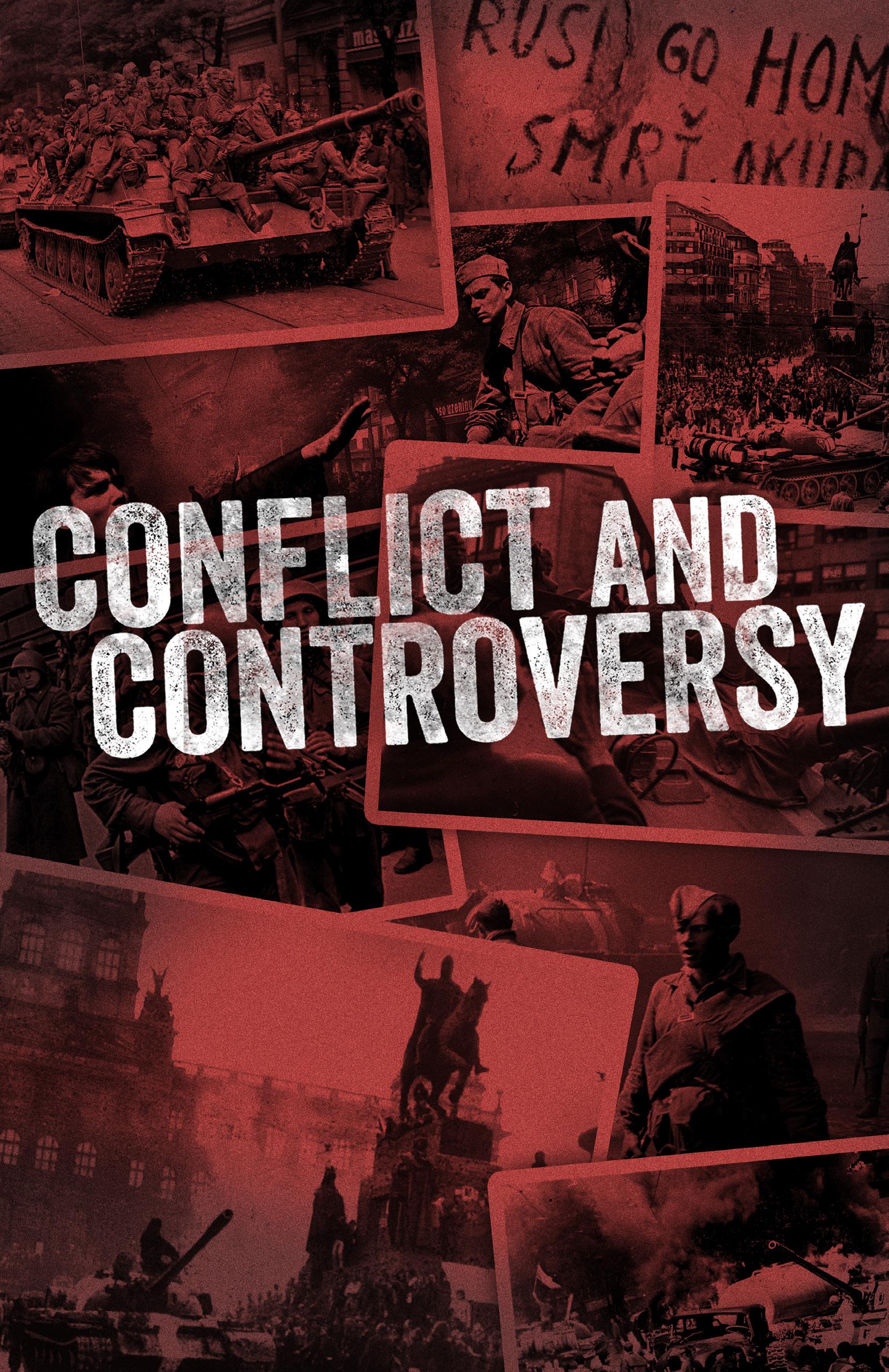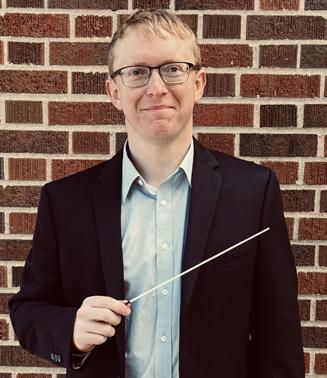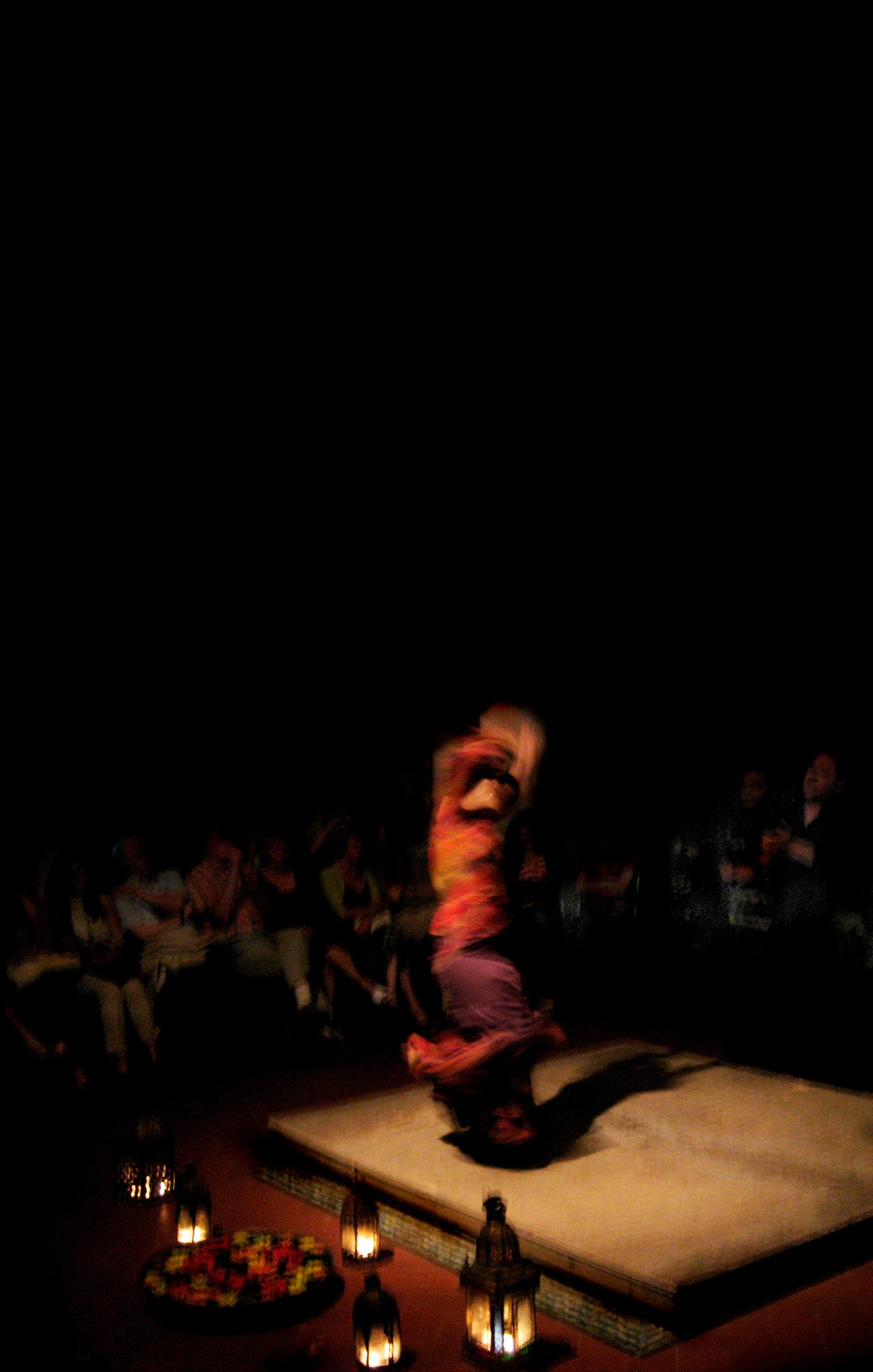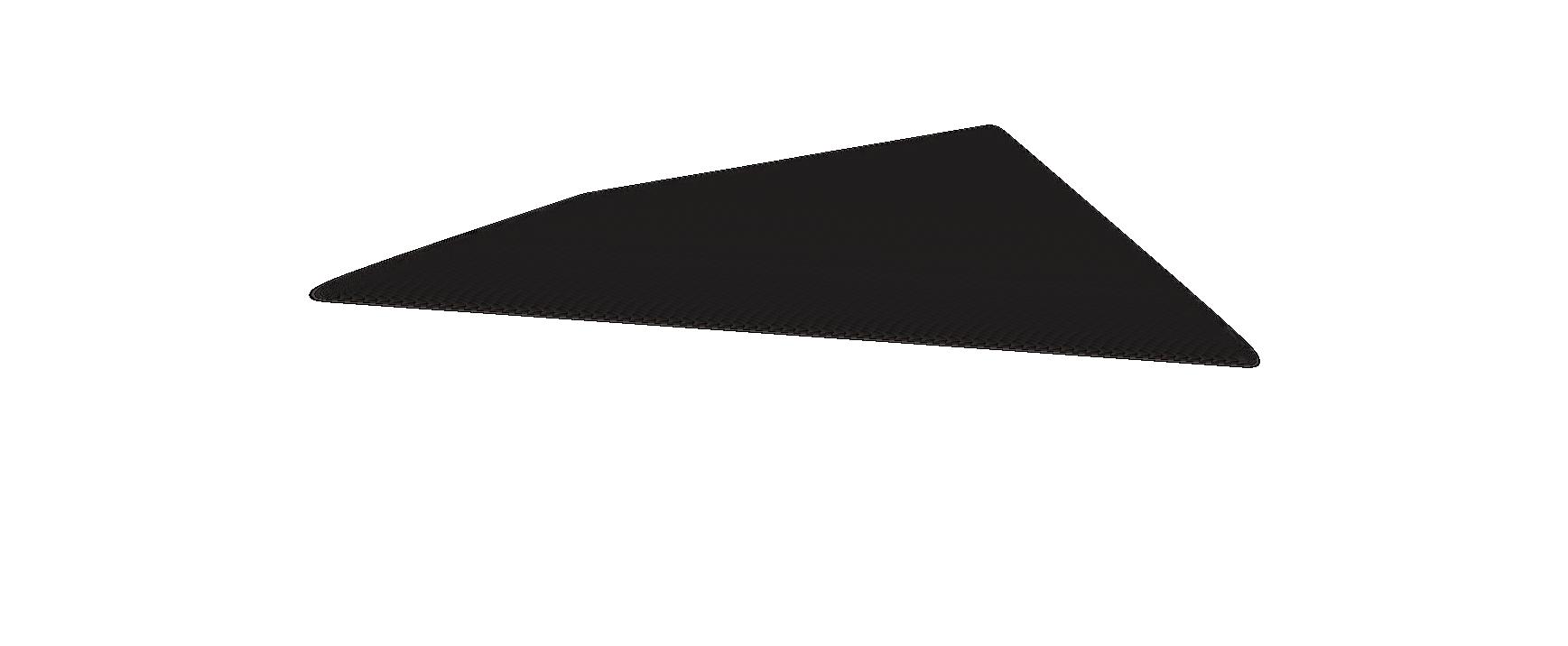CONDUCTED BY REBECCA PHILLIPS
James Mepham, graduate student conductor
FEATURING MUSIC BY ADOLPHUS HAILSTORK, OSTWALD-WINNING COMPOSER JOHN MACKEY, WILLIAM D. REVELLI-WINNING COMPOSER JAMES M. DAVID, AND PULITZER PRIZE-WINNING COMPOSER KAREL HUSA
October 3, 2024, 7:30 p.m.
Griffin Concert Hall
Thursday Evening, October 3, 2024 at 7:30 P.M.
The Colorado State University Wind Symphony Presents: Conflict & Controversy
REBECCA PHILLIPS, conductor
JAMES MEPHAM, graduate guest conductor
JOHN MACKEY
Redline Tango (2004)
ADOLPHUS HAILSTORK
American Guernica (1982)
James Mepham, graduate guest conductor
JAMES M. DAVID
E Ala Ē: Arise and Awaken (2024)
I. Haleakalā Preludium
II. Flowers from Paoakalani
III. Hana Highway
KAREL HUSA
Music for Prague 1968 (1968)
I. Introduction and Fanfare
II. Aria
III. Interlude
IV. Toccata and Chorale
The Wind Symphony welcome’s you to our opening concert of the season. Tonight, we perform works that capture the conflict and controversy of specific historical events from around the world. The program explores memories and emotions of these incidents through the eyes of each composer, including pieces by Ostwald-winning composer John Mackey, Adolphus Hailstork (conducted by graduate student conductor James Mepham), William D. Revelli-winning composer James M. David, and Pulitzer Prize-winning composer Karel Husa and his epic work for band, Music for Prague 1968
We invite you to join us at future concerts this season as the Colorado State University Wind Symphony prepares for their historic concert tour of Spain in March 2025. In December, we will explore music of Spanish and Latin American composers, including Luis Alarcón’s Spanish Dances, Dennis Llinás’ Un Cafecito, and faculty guest artist and CSU professor of clarinet, Wesley Ferreira will be featured performing Freiberg’s Latin American Chronicles. We hope you will join us for this vibrant and colorful concert on Friday, December 6th at 7:30pm.
NOTES ON THE PROGRAM
Redline Tango (2004)
JOHN MACKEY
Born: 1 October 1973, New Philadelphia, Ohio
Currently resides in New York, New York
Duration: 9 minutes
Redline Tango takes its title from two sources. The first is the common term of “redlining an engine,” or pushing it to the limit. In the case of this score, “redline” also refers to the “red line,” or the IRT subway line (2 and 3 trains) of the New York subway system, which is the train that goes between my apartment on the Upper West Side of Manhattan and BAM, where this work was premiered.
The work is in three sections. The first section is the initial virtuosic “redlining” section, with constantly-driving 16th-notes and a gradual increase in intensity. After the peak comes the second section, the “tango,” which is rather light but demented, and even a bit sleazy. The material for the tango is derived directly from the first section of the work. A transition leads us back to an even “redder” version of the first section, with one final pop at the end.
— program notes by the composer
American Guernica (1982)
ADOLPHUS HAILSTORK
Born: 17 April 1941, Rochester, NY
Currently resides in Virginia Beach, VA
Duration: 7 minutes
Adolphus Hailstork is an American composer who uses his eclectic musical voice to promote diversity. Hailstork grew up playing violin and singing in church choirs at the Episcopal Cathedral in Rochester, NY. He was also hired as part-time summer organist for his church at age sixteen, after several years of piano lessons. Hailstork pursued a B.A. in Music Composition and Theory at Howard University, graduating in 1963. He spent that summer in France, studying composition with Nadia Boulanger at the American Institute in Fontainebleau. Hailstork attended the Manhattan School of Music and received his PhD in Music Composition from Michigan State University. He currently resides in Virginia Beach, VA, and serves as Professor of Music and Eminent Scholar at Old Dominion University.
Hailstork’s music incorporates French impressionism, American neo-romanticism, and 20th-century atonality, often quoting African American spirituals and the blues. He reached his compositional maturity at a time when the music of black composers was rarely heard in a concert hall and pioneered the use of classical music to enact social change. His opera, Rise to Freedom, explores the story of John P. Parker, a southern slave who bought his freedom and helped other slaves escape to freedom via the Underground Railroad. His Symphony No. 4: A Knee on a Neck, premiered in 2022 as a tribute to the death of George Floyd, written to bring further attention to the racial divide still present in the U.S. Adolphus Hailstork is a master of his craft, and continues his work to enact social change through his music.
American Guernica is one of the earliest examples of a social justice composition in the wind band medium. In it, Hailstork pays tribute to the victims of the 16th Street Baptist Church bombing in Birmingham, AL, on September 15, 1963. Denise McNair, Addie Mae Collins, Cynthia Wesley, and Carole Robertson were brutally murdered that morning while attending Sunday School. Members of the Ku Klux Klan took responsibility for this bombing, with one of its members finally charged with murder in 1977. This harrowing event, whose four victims were all younger than 15 years old, occurred at the height of the Civil Rights Movement. Birmingham was a highly segregated city at the time, and the bombing brought national attention to the racial bigotry aimed toward African Americans in the South.
American Guernica begins mere seconds after the initial bombing with musical depictions of the horror and trauma felt by its survivors. The highly dissonant harmonies and siren sounds dramatically capture the initial shock of such a harrowing event. Hailstork then proceeds to intersperse this musical trauma with hints of an interrupted church service in the form of two gospel piano solos. In later writings, the composer notes that much of the harmonic language used in the beginning section is based on Husa’s Music for Prague 1968. Following this chaos, a haunting clarinet solo imitates the sounds of a wailing mother and leads into the slower second half of American Guernica. The work ends with a solemn funeral dirge, discordant echoes of a more innocent time, and four short ensemble strikes, representing the four young girls murdered by hatred.
— program notes by James Mepham
E Ala Ē: Arise and Awaken (2024)
JAMES M. DAVID
Born: 1978, Cairo, Georgia
Currently resides in Fort Collins, Colorado
Duration: 12 minutes 30 seconds
This three-movement composition explores my thoughts and research into the Hawaiian islands’ remarkably varied sounds and culture. Each separate movement represents different facets of both my personal experiences in Hawai’i and the rich aural tapestry of the islands. Hopefully, together we can “arise and awaken” to the voices and majesty of this sacred place.
I. Haleakalā Praeludium – The summit of Haleakalā, the principal peak of the island of Maui, is among the most striking and spiritual places in Hawaii. Bold and declamatory, this movement depicts the flight of the kōlea (Pacific Golden Plover) from the shore of the island over the mountain. These birds are believed to be among the oldest visitors to the islands and its lilting song joins with traditional drumming patterns. The sunrise chant grows in power from brass and bells as we see the ancient crater revealed from shadow to bring an emphatic awakening of the senses.
II. Flowers from Paoakalani – Queen Liliʻuokalani, last sovereign of the Hawaiian Kingdom, was also a skilled musician and composer of many of the best-known mele (songs). She was imprisoned in 1895 for political reasons and wrote Ke Aloha O Ka Haku (The Queen’s Prayer) and Kuʻu Pua I Paoakalani that year. She was brought information through a supporter who wrapped flowers from her garden in Paoakalani in current newspapers each day. This movement combines these two songs within a chorale setting that incorporates both neotonal harmony with Hawaiian choral traditions. Hopefully, it will speak to Liliʻuokalani’s legacy as an inspirational voice of her people.
III. Hana Highway – The final movement depicts a thrilling ride through the mountain rain forests near the small town of Hana. Narrow and twisting roads pass steep cliffs, pristine waterfalls, and breathtaking ocean views far below. As we come down the mountain, we can view surfers braving the famous big waves of Hawai’i’s northern shores. The songs of two native bird species are the sources of the primary melodic materials: first is the lilting and complex song of the ʻAlauahio which is contrasted with the steadily rising trill of the ʻAmakihi. The rhythms of hula instruments including the ipu (gourd drum), puʻili (split bamboo), and ʻili ʻili (stones) accompany the birdsongs. As the movement progresses, influences from more contemporary Hawaiian music including the famous harmonized glissando of the steel guitar and the rhythms of Hawaiian swing and rock ‘n roll of the 1940s and ‘50s.
This work was commissioned by the Hawai’i Wind Band Consortium led by Dr. Rickey Hau’oli Badua. Special thanks to Dr. Chad Kamei and the Oahu Band Directors Association for their collaboration in organizing the Hawai’i Wind Band Consortium.
— program notes by the composer
Music for Prague 1968 (1968)
Karel Husa
Born: 7 August 1921, Prague, Czechoslovakia
Died: 14 December 2016, Apex, NC
Duration: 22 minutes 30 seconds
In 1968, Czechoslovakia began to experience a relaxing of Communist economic policies and a lifting of restrictions on media, speech and travel. The Soviets denounced this “Prague Spring” and, after several failed attempts at negotiation, sent Eastern Bloc armies to invade the country on the night of Aug. 20.
Composer Karel Husa heard about the invasion while on vacation at his summer cottage in upstate New York. The professor of music at Cornell University and Czech expatriate resolved to write a new composition for band that would express the tragedy of the occupation.
Music for Prague 1968 has been called one of the most important original compositions for band. It is the composer’s wish that the following forward, written by the composer himself, be printed in its entirety in all concert programs of each performance:
Three main ideas bind the composition together. The first and most important is an old Hussite war song from the 15th century, Ye Warriors of God and His Law, a symbol of resistance and hope for hundreds of years, whenever fate lay heavy on the Czech nation. It has been utilized also by many Czech composers, including Smetana in My Country. The beginning of this religious song is announced very softly in the first movement by the timpani and concludes in a strong unison (Chorale). The song is never used in its entirety.
The second idea is the sound of bells throughout, Prague, named also the City of “Hundreds of Towers,” has used its magnificently sounding church bells as calls of distress as well as of victory. The last idea is a motif of three chords first appearing very softly under the
piccolo solo at the beginning of the piece, in flutes, clarinets and horns. Later it reappears at extremely strong dynamic levels, for example, in the middle of the Aria.
Different techniques of composing as well as orchestrating have been used in Music for Prague 1968 and some new sounds explored, such as the percussion section in the Interlude, the ending of the work, etc. Much symbolism also appears; in addition to the distress calls in the first movement (Fanfares), the unbroken hope of the Hussite song, sound of bells, or the tragedy (Aria), there is also the bird call at the beginning (piccolo solo), a symbol of the liberty which the City of Prague has seen only for moments during its thousand years of existence.
— program notes by Andrew Skaggs for the U.S. Navy Band
Piccolo/Flute
Madrigal Frederick-Law
Annika Johnson
Lucy McCrossan
Ella Patterson
*Madison Tallman
Oboe/English Horn
Amber Mills
*Madina Rashidova
COLORADO STATE UNIVERSITY WIND SYMPHONY
Greeley, CO Senior
Highlands Ranch, CO Sophomore
Simi Valley, CA Senior
Longmont, CO Junior
Colorado Springs, CO Graduate Student
BA Art History, Music Minor
BM Performance
BM Music Education
BM Performance
MM Performance
Pueblo, CO Freshman
Tashkent, Uzbekistan Graduate Student
Olivia Zenzinger Arvada, CO Sophomore
Bb/Eb/Alto/Bass/Contra Bass Clarinet
Montgomerie Belk
Rachel Bowyer
Lexington, NC Sophomore
Colorado Springs, CO Senior
Cole Boyd Fort Collins, CO Junior
Analiese Brown Monument, CO Sophomore
BM Music Education
MM Performance
BM Music Education
BM Performance
BM Music Therapy
BM Perf/Business Admin
BMS Micro, Music Minor
Henry Buckley Loveland, CO Junior Exploratory Studies
William Edmundson
Peter Hansen
Houston, TX Sophomore
Elko, NV Graduate Student
Cole Husted Loveland, CO Freshman
Makalyee Lange Denver, CO Senior
Orion Rayburn Fort Collins, CO Freshman
Triston Told Fort Collins, CO Junior
*Katrina Whitenect Halifax, NS, CA Graduate Student
Bassoon/Contra Bassoon
Cayla Bellamy, Johnstown, CO Guest Artist
James Kachline Denver, CO Senior
*Aurora Mudgett Round Rock, TX Sophomore
Soprano/Alto/Tenor/Baritone Saxophone
Norah Artley
Lakewood, CO Senior
Riley Busch Littleton, CO Senior
*Damian Lesperance-Young Erie, CO Senior
Sam Lumsden Memphis, TN Graduate Student
Anthony Sacheli
Colorado Springs, CO Senior
BM Music Education
MM Performance
BS Health & Exercise Science
BM Music Therapy
BM Performance
BM Music Education
MM Performance
BA Music
BM Performance
BS Civil Engineering, Music Minor
BM Music Education
BM Jazz Performance
MM Performance
BM Music Education
Horn
*Jacob Andersen Richmond, VA Graduate Student
Erin Bentley Brighton, TN Graduate Student
*Sophia Marino Boulder, CO Junior
Emma Tydeman
Austin, TX Freshman
Erin Wilson Fort Collins, CO Senior
Trumpet/Cornet
Dylan Crabill
Will Hiett
Colorado Springs, CO Junior
Opelika, AL Graduate Student
Lauren Smith Fruita, CO Freshman
Hannes Spiller
Fort Collins, CO Freshman
*Kristopher Usrey Fort Collins, CO Senior
Arjen Wynja Lyons, CO Junior
Trombone/Bass Trombone
Fletcher Ayres
*Bryce Medlyn
Amber Minich
Andre Ranis
Euphonium
*Belle Hybertson
Aleyna Zisser
Tuba
*David Davis
Adria Leos
Carson Ross
Percussion:
Cameron Becker
Ellis Byrd
Zayne Clappe
*Colin Ferry
Paige Lincoln-Rohlfing
Colorado Springs, CO Senior
Windsor, CO Senior
Murrieta, CA Graduate Student
Vicksburg, MS Graduate Student
MM Performance
MM Music Therapy
BM Performance/BS Zoology
BS Animal Science, Music Minor
BM Performance
BM Performance
MM Performance
BM Performance & Composition
BM Performance
BM Perf/BS Psychology
BM Music Education
BA Graphic Design, Music Minor
BM Performance & Composition
MM Performance
MM Performance
Highlands Ranch, CO Sophomore
Colorado Springs, CO Junior
Gig Harbor, WA Graduate Student
Abilene, TX Senior
Rio Rancho, NM Graduate Student
BM Perf/BA Political Science
BS Zoology, Music Minor
MM Performance
BM Performance
MM Performance
Plano, TX Sophomore
Land O’ Lakes, FL Graduate Student
Cortez, CO Junior
Longmont, CO Senior
Santa Barbara, CA Senior
Noah Roppe Parker, CO Senior
Eddie Willett
Windsor, CO Sophomore
BM Music Education
MM Performance
BM Performance
BM Perf/Comp, BS Mathematics
BM Perf/BS Biomedical Science
BM Performance
BM Performance/BS Business
String Bass
*Maxwell Williams
Piano
*Timothy Burns
Graduate Assistants
David Davis
Cameron Honnen
James Mepham
*Principal
Fort Collins, CO Junior
Fort Collins, CO Guest Artist
Gig Harbor, WA Graduate Student
Grand Junction, CO Graduate Student
Great Falls, MT Graduate Student
BM Performance
BM Performance
BM Performance
BM Performance
COLORADO STATE UNIVERSITY MUSIC APPLIED FACULTY
Violin
Ron Francois
Viola
Margaret Miller
Cello
Meredith Blecha-Wells
Bass
Forest Greenough
Guitar
Jeff Laquatra
Flute
Ysmael Reyes
Michelle Stanley
Oboe
Galit Kaunitz
Clarinet
Wesley Ferreira
Saxophone
Peter Sommer
Dan Goble
Bassoon
Cayla Bellamy
Trumpet
Stanley Curtis
Horn
John McGuire
Trombone
Drew Leslie
Tuba/Euphonium
Chris Bloom
Percussion
Eric Hollenbeck
Shilo Stroman
Harp
Kathryn Harms
Piano
Bryan Wallick
Tim Burns
Organ
Joel Bacon
Voice
Nicole Asel
Tiffany Blake
John Lindsey
James Mepham, originally from Great Falls (Montana), is pursuing a Master of Music in wind conducting from Colorado State University (CSU). As a graduate teaching assistant, he assists with the administrative duties of a comprehensive collegiate band program, including athletic bands (CSU Marching Band, Presidential Pep Band, and Rampage Basketball Pep Band), concert bands, recruiting activities, and the CSU Honor Band. Mr. Mepham is the manager of the CSU Wind Symphony and guest graduate conductor for the Wind Symphony, Symphonic Band, and Concert Band.
Mr. Mepham attended the University of Montana in Missoula (UM), graduating with high honors in 2014. While at UM, he earned bachelor’s degrees in music education and saxophone performance. He played saxophone in the UM Symphonic Wind Ensemble, Jazz Ensemble 1, the UM Grizzly Marching Band, and in numerous saxophone quartets and jazz combos. While at UM, Mr. Mepham also performed in two North American Saxophone Alliance regional conferences. He was elected president of the University of Montana NAfME Collegiate chapter, where he organized professional development and service projects, and co-founded the UM Saxophone Studio student group.
Serving as a music educator for nine years in the Montana public schools, Mr. Mepham’s first job was teaching K-12 music in a rural school district of about 200 students. He is currently on a two-year leave from his position as director of bands at Great Falls High School (GFHS), a position he held for six years. While at GFHS, he was the sole director of a large comprehensive high school band program that included three concert bands, jazz ensemble, percussion ensemble, the Bison Pep Band, and the Thundering Herd Marching Band. At GFHS, he received three Golden Apple Awards, an Excellence in Education Award, and was featured in a student editorial in the Great Falls Tribune titled “GFHS Band Teacher Inspires a Love of Music.” Throughout his career, Mr. Mepham has guest-conducted band festivals, adjudicated Montana High School Association (MHSA) large-group evaluations, and judged district music festival solo/ensemble competitions. He also served on the Montana Bandmasters State Board, presented at Montana Bandmasters professional development conferences, served as an MHSA District Music Festival Organizing Chair, and is a regular guest conductor for the Great Falls Municipal Band.
Mr. Mepham continues to perform as a saxophonist and deeply values the performance element of his musical life. He studied classical and jazz saxophone performance with Johan Eriksson at UM and with Peter Sommer and Dan Goble at CSU. He performed as a soloist with the Great Falls Symphony and in summer pops series with the Glacier Symphony and
Helena Symphony. In addition, he played in jazz ensembles, funk bands, pit orchestras, and concert bands throughout his home state and taught private saxophone lessons. He also performed (saxophone) on national tours for The Temptations and The Four Tops. Mr. Mepham has aspired to be a conductor since the age of ten, after attending his first Great Falls Symphony performance. His primary conducting teachers are Dr. Rebecca Phillips, Dr. Jayme Taylor, and Dr. James Smart. He has worked in master classes with Steven Davis, Allan McMurray, Craig Kirchhoff, Paula Holcomb, Jeffery Grogan, Kevin Sedatole, and Verena Mösenbichler-Bryant. Mr. Mepham is passionate about supporting young teachers and making music education accessible to all students, especially those in rural areas like Montana. He is proud of all the students he’s helped throughout his career and happy to have inspired many to pursue careers in music.

Dr. James M. David (b. 1978) is an American composer and professor of music theory and composition at Colorado State University. His symphonic works have been performed and recorded by many prominent ensembles including the U.S. Air Force Band, the U.S. Army Band “Pershing’s Own”, the U.S. Army Field Band, the U.S. Navy Band, the Des Moines Symphony Orchestra, the Fort Collins Symphony Orchestra, the Showa Wind Symphony (Japan), the Osaka Shion Wind Orchestra, and the North Texas Wind Symphony. His music has been performed at more than sixty national and international conferences including the Midwest Clinic, the College Band Directors National Association Biennial Conference, the American Bandmasters Association Convention, the World Association for Symphonic Bands and Ensembles Conference, the International Clarinet Fest, the International Trombone Festival, the Percussive Arts Society International Convention, the International Horn Symposium, and the World Saxophone Congress. Dr. David was the winner of the 2022 William D. Revelli Composition Contest, threetime finalist for the Sousa-ABA Ostwald Award, winner of an ASCAP Morton Gould Award, and won national contests sponsored by the Music Teachers National Association and the National Association of Composers (USA). Commissions include projects for the National Band Association, the Atlantic Coast Conference Band Directors Association, Joseph Alessi (New York Philharmonic), John Bruce Yeh (Chicago Symphony), James Markey (Boston Symphony), and hundreds of university faculty and ensembles. His works are represented on over twenty commercially released recordings on the Naxos, Summit, Mark, Albany, Parma, MSR Classics, Bravo Music, GIA Windworks, and Luminescence labels and are published by Murphy Music Press, C. Alan Publications, Potenza Publishing, and Excelsia Music.
As a native of southern Georgia, Dr. David began his musical training under his father Joe A. David, III, a renowned high school band director and professor of music education in the region. This lineage can be heard in his music through the strong influence of jazz and other Southern traditional music mixed with contemporary idioms. Dr. David received degrees in music education and music composition from the University of Georgia and the Florida State University College of Music. He studied composition with Guggenheim recipient Ladislav Kubik, Pulitzer recipient Ellen Taaffe Zwilich, Lewis Nielson, and Clifton Callender as well as jazz composition and arranging with Sammy Nestico.

Rebecca L. Phillips is Professor of Music and Director of Bands at Colorado State University where she conducts the CSU Wind Symphony and guides all aspects of the band and graduate wind conducting programs. Prior to this appointment, she served as the Associate Director of Bands and Director of Athletic Bands at the University of South Carolina where she was responsible for directing the Symphonic Winds Concert Band, “The Mighty Sound of the Southeast” Carolina Marching Band, “Concocktion” Pep Bands, teaching undergraduate instrumental conducting, and directing the Carolina Summer Drum Major Clinic.
Dr. Phillips has served as guest-conductor, clinician, and performer throughout North America, Europe, and Asia. Highlights include conductor-in-residence with the United States Navy Band in Washington, D.C., the Department of Defense All-Europe High School Honor Band in Frankfurt, Germany, guest-conducting the “The President’s Own” United States Marine Band, and both professional and collegiate musicians in Prague (Czech Republic) for the “Prague Multicultural Music Project.” In addition, she has conducted members of the Prague National Symphony at the inaugural “2017 American Spring Festival” (Prague, Czech Republic). In 2018, she conducted members of the Des Moines Symphony in a chamber concert for the Iowa Bandmasters Association annual conference.
Dr. Phillips regularly conducts intercollegiate and collegiate honor bands, all-state bands, and festival bands across the United States, Canada, and Europe and she has been a rehearsal clinician at the Midwest Clinic: An International Band and Orchestra Conference. Ensembles under her direction have been featured at the 2020 Colorado Music Educators Association Convention, the 2019 American Bandmasters Association National Convention, the 2012 College Band Director’s National Association Southern Division Conference, the 2010 Society of Composers International Conference, and the 2008 North American Saxophone Alliance International Convention.
Dr. Phillips believes in treasuring the traditional wind music of the past as well as promoting cutting edge works of today’s finest composers. She commissioned and conducted world and consortium premieres of works by several leading composers, including William Bolcom, James David, John Mackey, John Fitz Rogers, Kevin Poelking, Adam Silverman, Frank Ticheli, and Dana Wilson to name a few. Her conducting performances of David del Tredici’s In Wartime and John Mackey’s Redline Tango are both featured on the nationally distributed Louisiana State University Wind Ensemble compact disc project and the world premiere of John Fitz Rogers Narragansett is featured on the Compact Disc And I Await, featuring Dr. Phillips as guest-conductor of the University of South Carolina Wind Ensemble.
As a trombonist, Dr. Phillips’ performances can be found on several internationally distributed recordings. She has performed with the National Symphony Orchestra, U.S. Army Band (Pershing’s Own), the Tallahassee Symphony, and the Tampa Bay Opera Orchestra. She has also performed internationally in England, Mexico, the Caribbean, Russia, and Sweden, and has toured as a trombonist with Johnny Mathis and Barry Manilow.
A native of the Washington, D.C. area, Dr. Phillips earned her Bachelor of Music Education degree from Florida State University, Master of Music degrees in conducting and trombone performance from the University of South Florida, and Doctor of Musical Arts in conducting at Louisiana State University. She served as a secondary school band director for seven years in Florida, including Director of Bands at Howard W. Blake Performing Arts High School in Tampa, Florida where she developed an award-winning concert band program. She is a Past President of the National Band Association, serves on the Board of Directors for the American Bandmasters Association, served in various capacities with the College band Directors National Association, and is on the college/university board for the Western International Band Clinic.
JAYME TAYLOR CONDUCTOR
DAVID DAVIS
GRADUATE STUDENT CONDUCTOR
OCTOBER 8, 2024 7:30 P.M. GRIFFIN CONCERT HALL
A delightful mixture of repertoire spanning the breadth of modern concert band history including works by Gioachino Rossini, Gustav Holst, and CSU’s own Kevin Poelking













